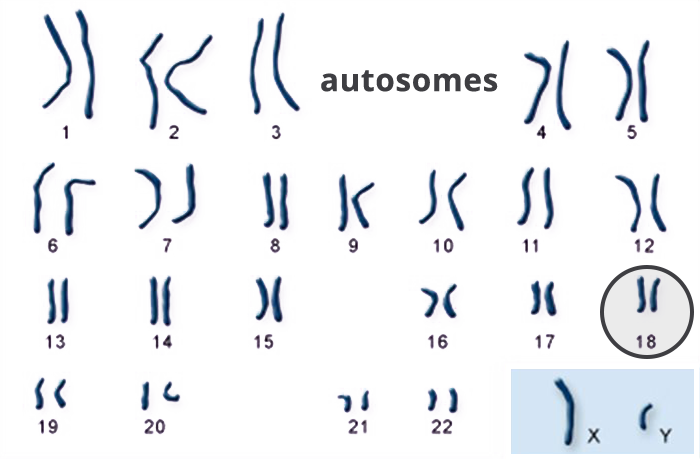Expecting a Child
Finding out that your child has a diagnosis of Trisomy 18 during your pregnancy is life-changing. You face an uncertain future and have many, many questions.
It is very likely that prior to learning of your child’s diagnosis, you were unfamiliar with Trisomy 18. While considered rare medically, Trisomy 18 is a life-threatening genetic disorder that impacts about 1 out of every 2000 pregnancies in the U.S. You and your child are not alone.
We have the resources and answers you need to understand your child’s diagnosis and make informed decisions about their health. We can also connect you with other families in our community who have faced these same challenges.
How Is Trisomy 18 Diagnosed?
Most cases of Trisomy 18 are diagnosed prenatally in the United States. Regardless of whether the diagnosis is made prenatally or postnatally (after birth), the process is the same. A sample of the baby’s DNA is extracted from a blood sample or other bodily cells or tissue and is cultured to examine a picture of the chromosomes called a karyotype.

A karyotype is simply a picture of a person’s chromosomes. In order to get this picture, the chromosomes are isolated, stained, and examined under the microscope. Most often, this is done using the chromosomes in the white blood cells. A picture of the chromosomes is taken through the microscope. A visible extra 18th chromosome confirms a Trisomy 18 diagnosis.
A lot of prenatal testing is available which may indicate Trisomy 18. It is important to understand that there are two types of testing: screening and diagnostic.
Making Decisions
Finding out that your child has Trisomy 18 is incredibly difficult and overwhelming. You may feel a range of emotions. You may feel that you’re in shock. You may be overwhelmed by the medical information you have been given and feel paralyzed about making decisions or moving forward. All of these feelings are completely normal.
But it is critical that you stop and process the news of Trisomy 18 before making any quick decisions. Make sure you have the support in place you need to help you navigate this journey. A partner or spouse, family members, healthcare providers, counselors, spiritual advisors, friends—whoever you need to help you as you embark on this difficult journey and make decisions for your child.
Take some time. You may feel pressured to make a decision immediately, but don’t be afraid to take the time you need to process the information you’ve been given and deal with the intense pain and grief you may be feeling. Don't make any hasty decisions. Get away and take some vacation time, even if it’s just a long weekend. Go somewhere relaxing and restorative for you—a country inn, a bed and breakfast, the beach, camping, whatever allows you to clear your head and cope with your emotions.
Don’t be afraid to grieve. Grieving when you receive a diagnosis like Trisomy 18 is very natural and is part of the process of coming to terms with the diagnosis. Let out your emotions so that you can deal with the pain, the anger, and the sadness you feel. Talk to your partner. Write in a journal. Cry and scream. Take a walk. Talk to your counselor or minister. Do whatever makes you feel comforted and supported.
After you’ve spent some time dealing with your emotions and working through your grief, you can begin the difficult process of decision-making. Learn as much as you can or would like about each option presented to you. Talk with your doctors and healthcare providers. Many times it is difficult to think on the spot when you’re learning about the diagnosis and your options, so don’t be afraid to ask your doctor to repeat information to ensure you understand it or to ask additional questions. This is an overwhelming and emotionally-fraught process, and you want to make sure you have all of the information you need to make the best decision for your child. Don’t be afraid to ask for what you need—a support person to accompany you, another appointment to discuss your questions, more testing, whatever you need.
You can also reach out to those in the Trisomy 18 community to learn about their experiences. Our private Facebook group allows you to connect with those who have been in your shoes. Talk to them about their experiences. Don't be afraid to ask the hard questions. Their experiences can be invaluable for helping you understand your options.
You’re faced with impossible choices. It is unfair and gut-wrenching. But whatever decision you make, your decision is made out of love for your child. And that will make it the right one.
